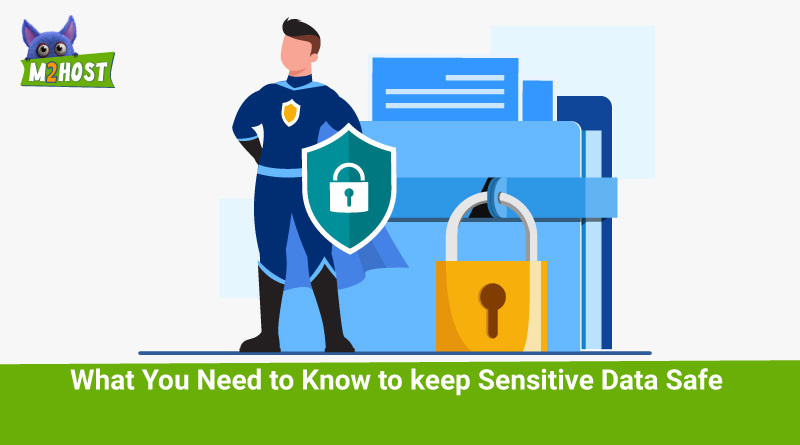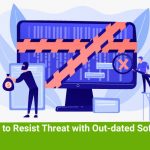The media is loaded with headlines of safety vulnerabilities that have taken place in high-profile businesses situated in a variety of countries and regions around the world. These intrusions bring to the forefront the insecure condition of data in addition to the general lack of effective safety processes in enterprises of all types and sizes. When it comes to the overall performance of the information security of your business, the confidentiality of the information security that your organization maintains is vitally crucial. The cash flow, employee logs, and other sensitive business details of your firm all need to be protected from unauthorized access. In the case that someone steals your information security, you run the danger of incurring damages to not just your reputation but also your money. You can prevent yourself from being recognized in the media by taking the information security precautions that are available to us.

Tips to improve information security. The following tips will help you increase your information security.
Protect the information security itself, not just the perimeter
It would seem that the main worry of numerous companies is the information security that is stored within their doors, given that up to 90 percent of a company’s safety investment is often committed to firewalls. On the other side, there could be dozens of ways to overcome a barrier. Some of these information security approaches involve employing customers, providers, or even staff. Every one of these people is able to get through the layer of information security that is located on the network’s perimeter and make unauthorized use of sensitive data. Due to information security, you need to make absolutely sure that the main focus of your security precautions is on the efforts you undertake to safeguard the information security directly instead of focusing just on the areas surrounding the information security, such as the perimeter.
Paying alert to the dangers that come from the inside.
It is simple to imagine dangers coming from beyond your business because they are frequently portrayed in the media, particularly on tv and in the news, as the gravest and most expensive dangers. In spite of this, the fact of the matter is that those closest to you are the ones that pose the greatest threat to the information security of the organization. Internal assaults on information security could be challenging to identify and difficult to avoid because of the character of the assaults themselves. The release of malware infection of information security could be caused by something as simple as a worker opening email attachments that they are under the impression has originated from a reliable provider. Information security types of dangers are the ones that are most widespread all over the globe that do the greatest damage.
Encode all gadgets due to information security
In today’s high-tech world, an increasing number of people are selecting to carry out their work responsibilities using portable or personal technology for information security. What measures can you take to ensure the dependability of these electronic devices? Make sure that any and all information is stored in an encrypted format and that this information security format is preserved through any and all transmissions.
Examine the state of your information security safety.
If you feel that protecting the information security of your company from potential dangers posed by the outside world can be accomplished by merely putting antivirus on all of the desktops and other equipment used by your company, you are wrong. When you commission a reputable company to do a security audit of information security on your behalf, the results will always reveal vulnerabilities that you had not anticipated discovering. Thefts of data related to information security in the past have provided evidence for this theory. It is highly recommended that you take a walk around the office in order to examine the individual work areas of your employees. I can guarantee that if you look for a password for a significant amount of time and put in the necessary amount of effort for your information security, you will find it scribbled down
Delete unnecessary data for information security
A significant number of businesses, particularly those operating in the fields of medicine, banking, and the public sector, including academia, must routinely deal with information security as an integral component of their operations. By ensuring that information security deletion protocols are in place and operating effectively, it is essential to prevent out-of-date data from being forgotten about and stolen at a later point. Information security is achieved by preventing data loss. Having a process in place for removing, deleting, and otherwise modifying duplication in such a way that it is unreadable in some other way can go a long way toward lowering the possibility that your personnel will hoard it. Information security is accomplished by having a system in place.
Increasing the amount of time and money spent on information security
Because a lack of information security protection remains the most significant threat to an organization’s information technology infrastructure, many chief information officers (CIOs) have stated that increasing the amount of money and time spent on information security is an absolute necessity. As an awareness that information security needs to be an inherent part of all business processes, many large firms have information security to protect our employing chief security personnel, typically in board-level roles. This information security trend comes as a result of the need to secure information.
Generate complex usernames for information security
There are still many companies that have loose password standards, which results in key accounts having passwords that are easy to crack since they are basic, generic, and widely used. These accounts have access to information security that is sensitive and valuable. You should begin by establishing robust passwords as the first step in improving the level of information security in this domain. Make sure to use passwords that are difficult to guess and to change them at least once every three months for the importance of information security in the business. Never use passwords like “12345” or “Admin1”. It is imperative that you never commit your passwords to paper and leave them lying around where other people can find them. This will result in a loss of information security.
Maintaining regular program updates is essential for information security
Check that your PC has all of the latest updates and patches installed. This is frequently the most effective method for ensuring that it is sufficiently safeguarded. Your computer’s protection programs are only as reliable as the most current updates to them. It is highly recommended that users routinely upgrade their information security programs since cybercriminals & malware outbreaks are continually changing to take advantage of vulnerabilities in older program editions.
Back up your files frequently for information security
This should be a significant part of the information security strategy that you have. Whenever you have trustworthy backups in existence, you are ready for something, whether it be the accidental loss of files or the complete shutdown of your computer by a virus. If you have dependable duplicates in location, you are ready for everything. It is strongly suggested that copies of your material be kept in a distinct, remote area that is not the same as your primary place of business. This helps to guarantee that the information is safeguarded from any possible risks that may be present.
Develop an information security culture pervasive throughout the firm.
Anyone who has a login and passcode is accountable for maintaining the confidentiality of the data. IT directors need to make sure that their supervisors & staff are reminded on a regular basis that they should not disclose their login credentials to any third parties. The responsibility of ensuring the safety of sensitive information does not fall solely on the shoulders of a select few members of the IT department.
Conclusion
There are several features of your personal data that you should know in detail for reasons of security. It would provide you the ability to recognize hazards, making it more likely that you would be able to spot possible threats to your security and respond appropriately. Doing so would guarantee that you have the means to protect yourself. You should know not just where you keep your private papers, but also why you might feel the need to hide them from prying eyes. You must keep track of who has access to the information, and whether or not they require it to complete their jobs, if they don’t, you have the right to cut off their Internet connection.



